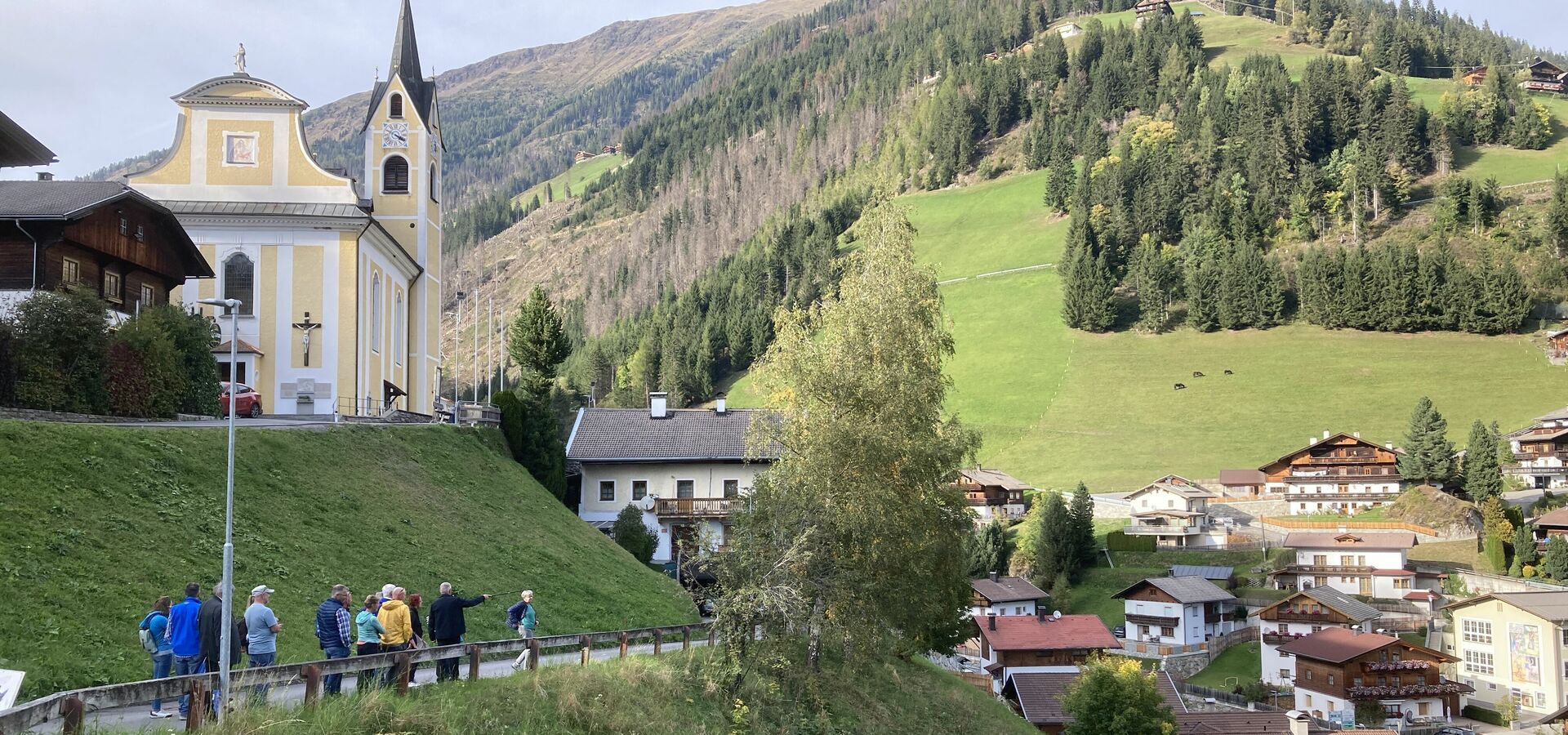The 15th Annual Meeting of the Mountaineering Villages brought together representatives from the certified villages and Alpine Clubs in the scenic valley of Villgratental, Austria. From 6 to 8 October, participants discussed developments and heard about good examples linked to the umbrella topic “Mountains & People – Alpine Life in Transition".
More than 100 participants were welcomed by Roland Kals (Austrian Alpine Club), one of the masterminds who developed the original criteria for Mountaineering Villages. Welcoming words also came via video message from Leonore Gewessler (Austrian Federal Minister for Climate Protection, Environment, Energy, Mobility, Innovation and Technology), Norbert Totschnig (Austrian Federal Minister for Agriculture, Forestry, Regions and Water Management), Josef Geisler (Deputy Governor of the Province of Tyrol), Wolfger Mayrhofer (Deputy Secretary General of the Alpine Convention), Clemens Matt (Secretary General of the Austrian Alpine Club).
“From our point of view, the Mountaineering Villages are a particularly successful implementation initiative of the Alpine Convention. One of the defining characteristics of the Convention and of the Mountaineering Villages concept is a holistic approach that puts the three pillars of sustainability – environment, economy and society – into action,” highlighted Deputy Secretary General of the Alpine Convention, Wolfger Mayrhofer, in his welcoming speech. Referring to the title of the conference, he also emphasised that Mountaineering Villages are a positive example of preserving Alpine traditions while allowing space for new developments.
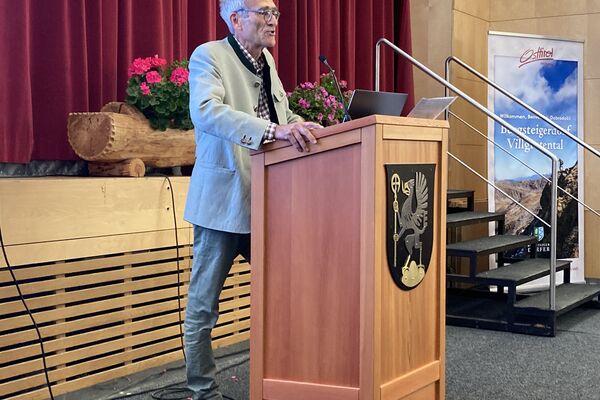
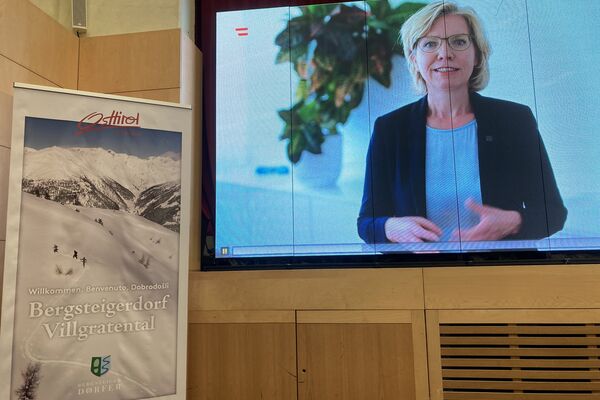
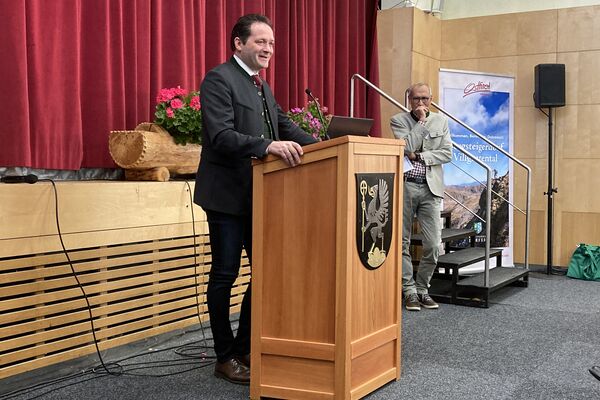
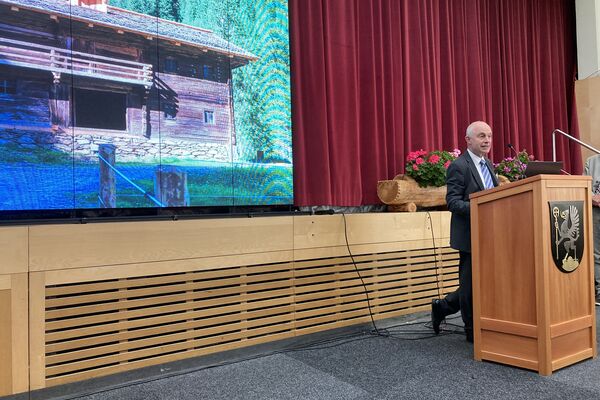
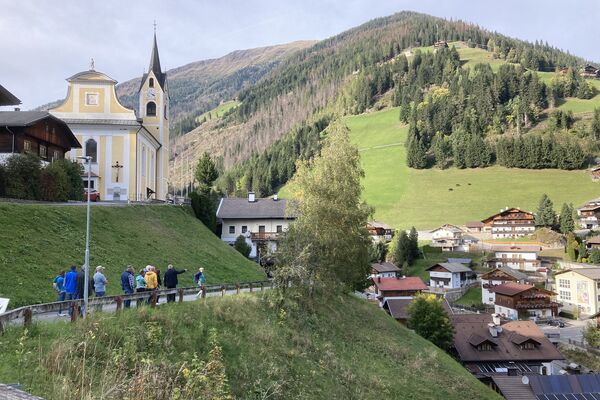
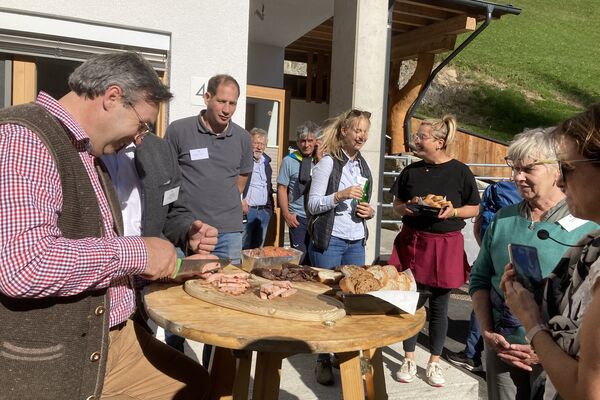
The participants had the opportunity to see how this works in practice during two excursions, one focused on handicrafts in Innervillgraten (sheep’s wool, wood, iron, brushes, a local mill, and a bakery) and one on the new local butcher’s in Außervillgraten, which has helped create jobs, avoid long transportation routes for animals (domestic and wild), and in which new products are developed (“Villgrater Bergfleisch”). The visits illustrated the opportunities offered by regional and sustainable production and how tradition and innovation can be successfully combined.
The participants also had a chance to experience the surrounding area during various excursions that concluded the conference.
Another theme of the Mountaineering Villages meeting was vacant buildings and soil consumption, which were dealt with during two keynote speeches. The speeches addressed the impact of the current high levels of land consumption and of vacant buildings as well as how to deal with them. They served as an introduction to a panel discussion, where, for example, the application of the Soil Protection Protocol of the Alpine Convention in relation to land use and vacancy was explained and discussed.

